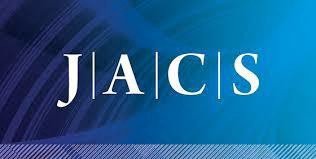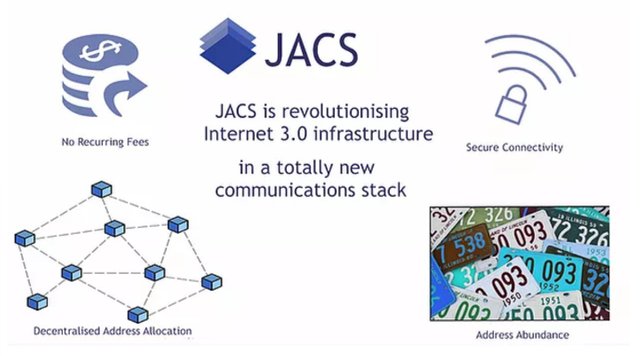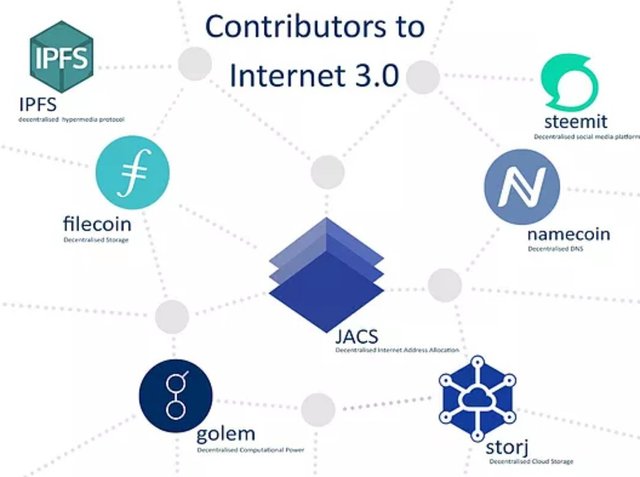JACS is Just Another Communications Stack that aims to change the way data networks currently work.
Ever since mobile phones started providing data communication services, it was inevitable that access to information, anytime will become a commodity.

Blockchain is the technology platform that provides decentralisation within its fabric and enables the rise towards the Internet 3.0
The founders of JACS have been working in the ICT industry for over 20 years delivering global, multi-million dollar, data communication projects.
They have participated in multiple, successful startups and aspire to revolutionise how the Internet currently works.
~
What is JACS

JACS is Just Another Communications Stack that aims to change the way data networks currently work.
It is the result of combining two technology: Blockchain and Connection-Less Network Services (CLNS), with its 160-bits ISO NSAP addresses.
JACS enables Web 3.0 evolution by providing a decentralised data communication stack that allows existing distributed applications and services to operate and develop so as to achieve the realities of the future.
Allowing the inter-connectivity of every grain of sand on the planet and even beyond. JACS provides a new communications stack that is totally different than TCP/IP.
~
The Problems
IPv4 Exhaustion
Address exhaustion is the depletion of the pool of unallocatedIPv4 addresses. Because there are fewer than 4.3 billion addresses available, depletion has been anticipated since the late 1980s. When the Internet started to experience dramatic growth.
This depletion is one of the reasons for the development and deployment other alternatives solutions, like IPv6.
Internet Routing Security
Internet routing security is one of the pressing issues in the Internet. It encompasses the correct announcement and propagation of IP prefixes between the domains or -using the Internet terminology -Autonomous Systems (AS).
Centralized Authorities in IPv4 & IPv6
The current centralized system to manage the global pool of IP addresses is in five transnational organizations, the Regional Internet Registries (RIRs).
Each of these RIRs manage the address pool for a large number of countries. Because the RIRs are private organization, they are subject to the legal framework of the country where they are based.
This configuration results in a jurisdictional overflow from the legal framework of the countries where the RIR is based to all the countries that the RIRs are serving (the countries served by the RIRs de facto become subjects of the legal system of the country where the RIR is hosted).
Beside the centralized nature of address allocation, there is always the burden of recurring maintenance or renewal fees as well as the relatively hard re-allocation of resources among the different RIRs.
~
The Solutions
IPv6 Percieved
Deployment of IPv6 was perceived as the standards-based solution to the IPv4 address shortage. IPv6 is endorsed and implemented by all Internet technical standards bodies and network equipment vendors.
It encompasses many design improvements, including the replacement of the 32-bit IPv4 address format with a 128-bit address which provides an addressing space without limitations for the foreseeable future.
IPchain: Blockchain-based Solution
IPchainis a blockchain that stores IP addresses allocation and delegation data. IPchain eases the deployment of internet routing security mechanisms.
Like crypto tokens and coins; IP addresses share some fundamental characteristics such as uniqueness or divisibility. Thus, IPchain allows its participants to exchange IP prefixes just like tokens exchange happens in blockchain.
This way, an ISP can record its IP addresses and who can advertise them. When another ISP receives a BGP update including these addresses, it can tell if they come from the legitimate source.
Central Authorities
Among the initiatives born to overcome the central allocation of IP addresses blocks was: ‘InBlock’.
InBlock is a blockchain-based distributed governance body that aimsto provide decentralized management of IP addresses. Beside decentralization, InBlock also aims to fulfill the same objectives as the current IP address allocation system.
InBlock is implemented as a Decentralized Autonomous Organization‘DAO’, i.e. as a set of blockchain’s smart contracts in Ethereum. Any entity may request an allocation of addresses to the InBlock registry by solely performing a cryptocurrency transfer to the InBlock.
~
JACS Features

JACS NSAP Address
The NSAP Address is formally defined in ISO/IEC 8348. It is the name of a Network Service Access Point (NSAP) located in an End System, and uniquely identifies that NSAP. From a routing perspective (as in ISIS ‘Intermediate System to Intermediate System’ routing protocol for instance); ISO addresses are generally subdivided into:
Area address
System identifier (ID)
NSAP selector (SEL)
Inside the JACS platform, in terms of overall structure as well as treating the last 7 octets of the NSAP address as 6 octets ID and 1 last octet as the NSEL.
JACS is starting from a clean slate in terms of NSAP addressing, so the abundance of addresses and the precise allocation scheme will reflect on a state-of-the-art allocation that is perfectly future and depletion proof.
Blockchain
A blockchain is a decentralized and distributed digital ledger that is used to record transactions across many computers so that the record cannot be altered retroactively without the alteration of all subsequent blocks and the collusion of the network.
This allows the participants to verify and audit transactions inexpensively. They are authenticated by mass collaboration powered bycollectiveself-interests.
Blockchain is a vital component in JACS platform, it performsmany functions, like:
Address allocation
Address registry
Route Origin verification and validation
Security of allocation and advertisement, thus preventing any security breach in the Internetrouting system, i.e. BGP Hijacking
Crowdfunding
Incentivizing the community and early adopters
~
Adventages of JACS
.jpeg)
IPv4 owner allowed to acquire JACS blocks totally free of charge, relative to your IPv4 holdings, that will be more than enoughfor your current and probably needs for three decades to come.
The hard work and cost of having a valid alternative to IPv4 that would be globally recognizable is done through JACS and its community.
If you are not a current IPv4 block owner, you can still acquire JACS blocks for your project, company, organization or even if you intend to run and operate a service provider or telco operator.
Don’t need to worry about any maintenance or operation cost, meaning that the cost per JACS block is a once-off, life-time cost.
There will be no central authority as IANA or the different regional and local registries with IP addresses, to request blocks from, justify to, accept their implied policies or whatever the process is, it’s all done automatically and decentralized over the blockchain.
~
JACS Tokenomics
Token Supply
536,870,912 (²²⁹: 2 to the Power of 29)
Token Symbol
JACS
Standard
ERC-20
Decimals
18
Token Function
Utility token over JACS Platform
Platform
Ethereum dApp then native JACS blockchain Q1, 2022
Creation Date
Q4, 2020
Rewards
18.75%
Reserve
18.75%
Crowdfund
62.5%
~
Disclaimer
“The main purpose of this article is to learning about JACS project. Under no circumstance, it should be considered as an investment advice”
~
For More Details
Website
https://www.jacs.tech/
Telegram
https://t.me/jacstech
Twitter
://www.twitter.com/Moustafaamin77
Reddit
https://www.reddit.com/r/JACSTECH/
LinkedIn
https://www.linkedin.com/company/viablock
YouTube
https://www.youtube.com/channel/UCICHtYggmdDTRJsPdOBs-GQ
Facebook
https://www.facebook.com/viaBlockLTD
Ann Thread
https://bitcointalk.org/index.php?topic=5279310.0
~
Author
Bitcointalk Username
Em00n01
Bitcointalk Profile Link
https://bitcointalk.org/index.php?action=profile;u=1033334
ETH Address
0x1853dba72ea5BB376993C8996DDc53107b28274f